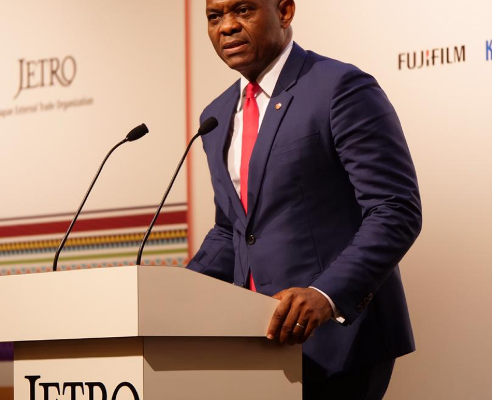Business
NEITI’s Reveals 2021 Solid Minerals Government Earnings
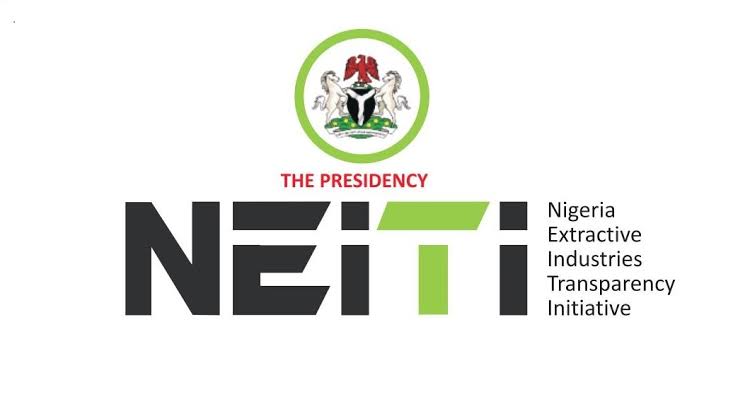
In a significant disclosure, Nigeria Extractive Industries Transparency Initiative (NEITI) has reveals the government’s earnings from solid minerals in 2021, offering insight into a vital economic sector.
According to NEITI, In 2021, the Federal Government of Nigeria generated N193.59 billion from the solid minerals sector.
Between 2007 and 2021, the sector contributed a total of N814.59 billion, with 2021 marking the highest earnings.
This information was disclosed by the Nigeria Extractive Industries Transparency Initiative (NEITI) during the unveiling of its 2021 Solid Minerals Industry Report in Abuja tagged: “Impact built on blocking leakages to grow revenue’’.
Senator George Akume, the Secretary to the Government of the Federation (SGF), was represented by Dr. Maurice Mbaeri, Permanent Secretary, General Services Office, SGF, during the report’s unveiling.
Dr. Maurice Mbaeri, Permanent Secretary of the General Services Office under the SGF, represented Senator George Akume during the event.
This 12th edition of the report encompasses actual payments made by 1,214 companies within the sector, as well as receipts from three vital government agencies.
The report also delves into the quantities of minerals produced, utilized, and exported from the sector, while providing reconciled data on physical and financial transactions.
Additionally, it includes special verifications of certain processes within the solid minerals industry.
During the report presentation, Orji Ogbonnaya Orji, the Executive Secretary of NEITI, highlighted that the figures indicated a significant increase of N60.32 billion or 51.89 percent growth compared to the 2020 revenue of N116.82 billion.
This positive trend, he noted, signifies a consistent upward trajectory observed in the sector over the past five years.
He said “This contribution, though a significant increase over past years, is still abysmal considering the potentials of the sector to the Nigerian economy,”
Orji explained that the 2021 Solid Minerals report thoroughly reviewed, ascertained, reconciled, and reported all revenues and investment flows associated with the government’s involvement in the solid minerals sector.
Additionally, the NEITI report encompassed tracking balances payable and receivable from financial inflows while monitoring the allocation and utilization of funds intended for the development of Nigeria’s solid minerals industry.
Orji clarified that these funds encompass various initiatives, such as the Natural Resources Development Fund, Solid Minerals Development Fund, the Ministry of Mines and Steel Development’s MinDiver Programme, and the Solid Minerals Development Funds administered through the Small and Medium Industries Equity Investment Scheme, which operates in partnership with the Bank of Industry.
Breaking down the revenues, it was revealed that the Federal Inland Revenue Service collected N169.52 billion, the Mining Cadastre Office generated N4.3 billion, and the Mining Inspectorate Department generated N3.62 billion.
Orji noted that the revenue deposited into the federation account from the sector over the past 15 years, totaling N818.04 billion, was considerably low when considering the sector’s economic potential.
Regarding production, the report disclosed that the total volume of solid minerals used or sold in 2021 amounted to 76.28 million tons, resulting in a royalty payment of N3.57 billion.
He said “The minerals with the largest production volume in the year under review are Granite, Limestone, Laterite, Clay and Sand.
“Dangote Plc accounted for the highest production with a total production of 28.8 million tons. Bua and Lafarge accounted for 8.4 and 4.3 million tons while Zeberced accounted for 3.3 million tons respectively.
“Ogun state recorded the highest production in the year under review, with a total of 17.5 million tons followed by Kogi state with 16.3 million tons and Edo with 8 million tons.
“The least production volume was recorded in Borno State with 25,500 tons,” he added
Orji provided further details, mentioning that a total of 2,045 licenses were issued, including 840 exploration licenses (reflecting a 62.79 percent increase), 771 Small Scale Mining Leases, 255 Quarry Leases, 139 Reconnaissance Permits, and 40 Mining Leases.
Regarding exports, he highlighted that the total minerals exported in 2021 amounted to 142.54 million tons, with a Free on Board (FOB) value of US$101.29 million. This represented a substantial increase of 138.57 percent compared to the US$42.46 million reported in the 2020 report.
China emerged as the primary destination for Nigeria’s mineral exports, representing 97 percent of the export volume and 88 percent of the export value.
Additionally, Nigeria’s minerals found their way to other destinations, including Malaysia, Korea, Thailand, and the United Arab Emirates.
In terms of the solid minerals sector’s contribution to the economy, Orji mentioned that the report indicated a contribution of 0.63 percent to the Gross Domestic Product (GDP).
This showed improvement when compared to previous years, where the sector contributed 0.45 percent in 2020 and 0.26 percent in 2019.
Business
PETROAN Commends Sustained Run Of P’Harcourt Refinery
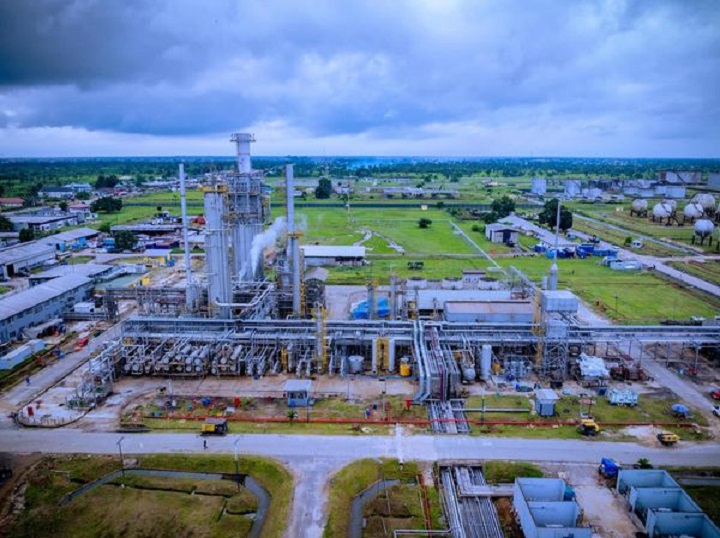
The unbroken run of the Port Harcourt Refining Company (PHRC) has been commended by a relevant stakeholder.
The Petroleum Products Retail Outlets Owners Association of Nigeria (PETROAN) gave kudos to the Nigerian National Petroleum Company Limited (NNPC Ltd) and others for the continuous operations of the refinery since October 2024.
Biztellers reports that the PHRC, which was dormant for over 20 years, was revamped with a loan provided by the Afreximbank. Revamping the PHRC was carried out by Tecnimont Nigeria Limited, a subsidiary of the Maire Tecnimont Group.
The PETROAN through a statement by its Publicity Secretary, Joseph Obele, has come out to praise Tecnimont Nigeria Limited “for their professionalism and expertise in delivering a world-class rehabilitation project.”
The host communities were also commended by the PETROAN, which noted their cooperation and support during the rehabilitation process.
ALSO READ: Gateway Games Will Inspire More Sports Stars In Nigeria – Abiodun
In the statement, the PETROAN noted thus, “The refinery, which was commissioned in October 2024, has been running continuously for 180 days, up to March, a remarkable feat that underscores the effectiveness of the rehabilitation project.”
Consequently, the “PETROAN is pleased to note that its members are currently loading diesel and kerosene from the refinery, while NNPCL retail marketers are loading PMS. This development has not only ensured a steady supply of petroleum products but has also helped to eliminate the circulation of fake kerosene and diesel in the market.”
The PETROAN also lauded the managing director of the Port Harcourt Refining Company, Ibrahim Onoja, for his dedication to ensuring the successful rehabilitation and operation of the refinery.
Higher authorities, including “President Bola Tinubu, for making funds available for the rehabilitation of the refinery; the Minister of State for Petroleum Resources (Oil), Senator Heineken Lokpobiri, for his supervision and guidance throughout the rehabilitation process; the Group Chief Executive Officer of NNPCL, Mele Kyari, for his leadership and commitment to the project; and the Managing Director of NNPC Retail Ltd, Hubb Stockman, for the effective marketing of all the products from the refinery,” were also commended by the PETROAN.
Industry regulator, the Nigerian Midstream and Downstream Petroleum Regulatory Authority (NMDPRA) was also lauded by the PETROAN for its regulatory oversight and support in ensuring the safe and efficient operation of the refinery.
Business
Nigeria Exports Over 2m Barrels Of Jet Fuel To US
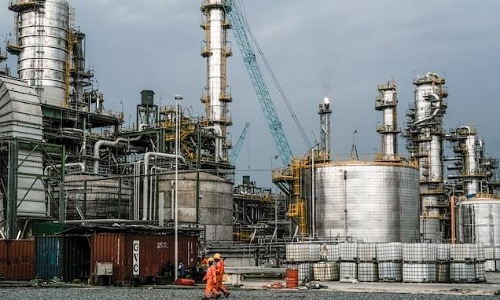
Evidence of the growing influence of the Dangote Petroleum Refinery & Petrochemicals has manifested far beyond Africa and the Middle East, with the United States having imported over two million barrels of jet fuel from the Nigerian based refinery in March.
According to experts, this development should bring immense joy to Nigerians, as it attests to the unparalleled quality of the refinery’s products and the trust that the international community places in the world’s largest single-train refinery.
Going by data from ship-tracking service Kpler, six vessels carrying around 1.7 million barrels of jet fuel from the Dangote Petroleum Refinery arrived at US ports this month.
It was gathered that another vessel, the Hafnia Andromeda, is set to arrive at the Everglades terminal on 29th March with approximately 348,000 barrels of jet fuel.
ALSO READ: NDSF Torch Brightens Edo State
The shipments from the Dangote Refinery, with a capacity of 650,000 barrels per day (bpd) — Africa’s largest — highlight its potential to reshape global fuel trading dynamics, establishing a new swing supplier in the Atlantic Basin.
Biztellers reports that this shipment to the United States follows three cargoes of jet fuel, totalling around 130 million litres, exported from Nigeria to Saudi Arabia by the Dangote Petroleum Refinery.
The refinery has already demonstrated its ability to compete with European refiners on gasoline (PMS) exports, and these jet fuel shipments to the United States could challenge the economics of domestic producers in the world’s largest fuel-consuming nation.
According to Chief Operating Officer of TankTiger, Steven Barsamian, “the surge in demand, partly driven by the influx of supply from Nigeria, is expected to lower jet fuel prices in the US ahead of the peak summer travel season. US jet fuel imports from Dangote Refinery are expected to decrease aviation fuel prices during this period, according to trade analysts and storage brokers. US jet fuel imports in March have averaged around 226,000 bpd, the highest since February 2023, underlining the global demand for products from Dangote Refinery.”
The Dangote Refinery, which commenced production in January 2024, has already exported its products to almost every continent. While the surge in US imports was partly triggered by a maintenance-related shutdown at the Phillips 66 Bayway refinery in New Jersey, analysts believe the choice of Dangote’s products highlights its growing presence in international markets, having successfully competed with European refiners in gasoline exports.
Economist and Chief Executive Officer of the Centre for the Promotion of Private Enterprises (CPPE), Dr Muda Yusuf, stated that the export of jet fuel to the United States by Dangote Refinery is a point of pride for Nigeria, highlighting the quality, standard, and the trust that the international community places in the refinery.
“Nothing could be more prideful for us as a country than the fact that we now have a refinery producing products that can be exported to the United States. It speaks to the quality, standards, and trust that international communities have in Dangote Refinery, because these are markets that don’t compromise on quality. They have stringent standards, and if they deem it worthy to import from Nigeria, it is a source of great pride,” he said.
On his part, the former Director-General of the Lagos Chamber of Commerce and Industry (LCCI) also emphasised that Dangote Refinery is enhancing Nigeria’s position on the global stage and should be supported by both citizens and the government.
“That is why all of us—citizens and the government — should do everything to support the refinery, as it is breaking many barriers and boosting our country’s reputation. The lesson here is that we should support the Dangote Refinery and other refineries with similar capacities, as they can provide us with significant leverage,” he added.
Similarly, Public Policy Expert, Dr Abimbola Oyarinu, stated that the Nigerian economy would be in a better state today if the country had functional refineries in the past, rather than just exporting crude oil while importing refined petroleum products.
“This is something that should have been addressed since 2014. Things wouldn’t have reached this point—such as high inflation and unemployment—if we had a functioning refinery. However, both the government and the people failed to take action until Dangote stepped in with significant investment. The Dangote Refinery is not only reducing foreign exchange outflow, but it is also bringing in foreign exchange. It is unfortunate that despite this, some elites and those in power are still intent on sabotaging the refinery and Dangote himself,” he said.
The university lecturer also warned that the lack of ease in doing business and the frustration of local investments could discourage future investors.
“This is something the country should be proud of. We previously had a mono-economy, reliant solely on oil exports, but Dangote has helped diversify the sector by selling finished products to international markets. However, which investors would want to invest in Nigeria after seeing what Dangote is going through?” he queried.
Business
Sustainability: CDP Rates Dangote Cement High On Climate Change, Water Security
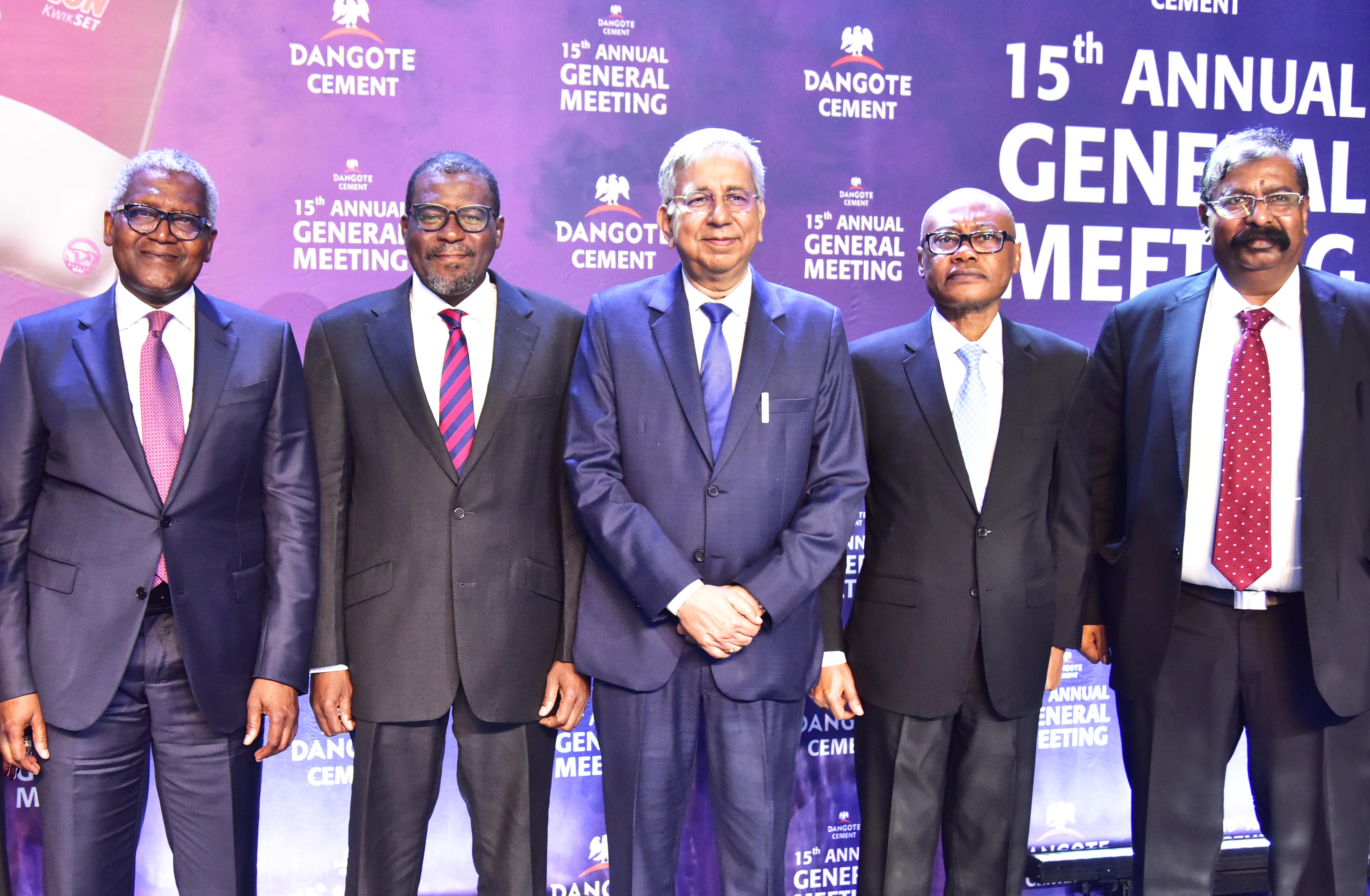
The Dangote Cement Plc (DCP) has achieved a ‘B’ score in climate change and water security disclosures according to the recently released 2024 Carbon Disclosure Project (CDP) results.
The CDP is the world’s largest, most comprehensive dataset on environmental action which empowers investors, companies, cities, and national and regional governments to make earth-positive decisions.
It was gathered that Dangote Cement has disclosed its environmental practices annually through the CDP since 2018.
On its part, the CDP provides a voluntary framework for companies to report on Climate, Water Security, and Forests. It rigorously evaluates corporate environmental performance, assigning scores from A to D based on companies’ transparency, governance, and measurable actions towards sustainability. Following the release of company scores in February, Dangote Cement’s score on water security which was C was upgraded to B. Similarly, the company’s commitment to supporting a climate resilient future was also demonstrated in its climate change score of B in 2024.
ALSO READ: ADF Spreads Palliatives To 10 States
On the new rating, Managing Director/Chief Executive, Dangote Cement, Arvind Pathak, said, “Dangote Cement leads in Africa as one of few businesses in six states and regions of Africa to disclose through CDP.”
He further stated that “the 2024 score is an outcome of ongoing efforts to reduce our carbon footprint, accelerate climate action and promote sustainability across our business and its value chain.”
On his part, the Head, Sustainability, Dangote Cement, Dr. Igazeuma Okoroba, expressed gratitude to all stakeholders who aligned with the Group’s Environmental, Social, and Governance (ESG) strategy overseen by the company’s Board which supported the achievement of an improved rating this year.
She asserted that “this year’s results are evidence that our contribution to create a world where people, planet and profit are truly balanced is paying off.”
Affirming the company’s commitment to decarbonisation, Dr Igazeuma stated that “Although this year’s score demonstrates our transparency on sustainability, DCP’s goal is to go beyond disclosure and take meaningful action through tangible solutions, innovations, and projects to close the gap between ambition and reality.”
Dangote Cement Plc is sub-Saharan Africa’s largest cement producer with an installed capacity of 45.6Mta across 10 African countries and operates a fully integrated “quarry-to customer” business with activities in manufacturing, sales, and distribution of cement. The company is on track to meet its decarbonisation targets through energy efficiency measures, adoption of supplementary cement materials, carbon offsets and other sustainable practices.













